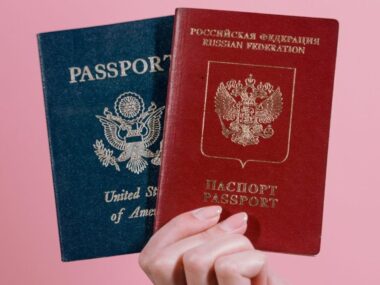Canada is widely recognized as one of the most immigrant-friendly nations, offering multiple opportunities for individuals seeking work, permanent residence, or family reunification through various sponsorship programs. With its strong economy, high quality of life, and commitment to diversity, Canada has established itself as a top destination for immigrants looking to build a better future. The Canadian Sponsorship Visa serves as a vital immigration pathway that allows Canadian citizens and permanent residents to bring their loved ones, reunite with family members, or support skilled and unskilled foreign workers in relocating, settling, and establishing themselves in the country.
This comprehensive and detailed guide will provide an in-depth explanation of the different types of sponsorship visas available, including family sponsorship, employer-sponsored work visas, and refugee sponsorship programs. Additionally, we will cover essential aspects such as eligibility criteria, application procedures, required documentation, financial requirements, processing fees, expected timelines, and potential challenges that applicants may encounter.
Furthermore, this guide will offer valuable tips, expert recommendations, and best practices for a successful sponsorship application, helping individuals and employers avoid common mistakes that could lead to delays or rejections. Whether you are a Canadian resident looking to sponsor a spouse, child, parent, or grandparent, or an employer seeking to hire a qualified foreign worker to address labor shortages, this guide will provide you with detailed insights and step-by-step instructions to navigate the sponsorship process efficiently and effectively.
Understanding the Canadian Sponsorship Visa
The Canadian Sponsorship Visa is a broad category of immigration pathways that enable individuals to move to Canada with the support of a sponsor. The primary categories include:
- Family Sponsorship: Designed for Canadian citizens or permanent residents to bring their spouse, children, parents, or grandparents.
- Work Sponsorship (Employer-Sponsored Work Visa): Allows Canadian employers to sponsor skilled foreign workers to fill labor shortages.
- Refugee Sponsorship: assists displaced individuals seeking asylum.
Each category has unique eligibility criteria, legal requirements, and processing times.
Family Sponsorship Visa
The Family Sponsorship Visa is one of the most common immigration pathways for individuals seeking to reunite with their relatives in Canada.
Who Can Be Sponsored?
Canadian citizens and permanent residents can sponsor:
- Spouse or Common-Law Partner
- Dependent Children (under 22 years old)
- Parents and Grandparents
- Other Relatives (under exceptional circumstances)
Eligibility Criteria for Sponsors
To qualify as a sponsor, the individual must:
- Be at least 18 years old.
- Be a Canadian citizen or permanent resident.
- Prove financial ability to support the sponsored person.
- Not be bankrupt or receive social assistance.
- Not have a criminal record related to violent offenses.
Financial Requirements
Sponsors must demonstrate they can financially support their family members. The government assesses the sponsor’s income through:
- Tax returns (Notice of Assessment from Canada Revenue Agency).
- Proof of employment and income.
- Bank statements.
Minimum Necessary Income (MNI) applies in some cases, especially when sponsoring parents or grandparents.
Processing Times
The time it takes to process family sponsorship applications varies.
- Spouse or partner: 12 months
- Parents and grandparents: 20–36 months
- Dependent children: 6–12 months
Steps to Apply
- Check Eligibility: Ensure you meet financial and legal criteria.
- Gather Documents: Collect proof of relationship, identity, and financial status.
- Submit Application: Apply online through Immigration, Refugees, and Citizenship Canada (IRCC).
- Pay Fees: Fees range from CAD 75 for children to CAD 1,050 for spouses.
- Wait for Processing: Monitor application status via the IRCC portal.
Work Sponsorship Visa
Employers in Canada can sponsor foreign workers through different immigration programs to address labor shortages.
Types of Work Sponsorship Programs
- Temporary Foreign Worker Program (TFWP): Requires a Labor Market Impact Assessment (LMIA).
- International Mobility Program (IMP): Allows employer sponsorship without an LMIA for workers from free trade agreement countries.
- Provincial Nominee Program (PNP): Allows provinces to nominate foreign workers for permanent residency.
- Express Entry-linked Employer Sponsorship: Supports skilled workers applying for PR through the Express Entry system.
Eligibility for Employers
To sponsor a worker, an employer must:
- Prove the job offer is genuine.
- Demonstrate efforts to hire Canadian residents before hiring a foreign worker.
- Provide a valid job contract and meet salary requirements.
Steps to Apply
- Obtain an LMIA (if required).
- Issue a formal job offer to the foreign worker.
- Submit a work permit application to IRCC.
- Await processing and approval.
Processing times vary but typically range from 2 to 6 months, depending on the program and country of application.
Refugee Sponsorship in Canada
Canada allows private organizations and individuals to sponsor refugees through:
- Private Sponsorship of Refugees (PSR) Program.
- Blended Visa Office-Referred (BVOR) Program.
- Government-Assisted Refugees (GAR) Program.
Sponsors must commit to providing financial and emotional support for the refugee for 12 months.
Steps to Sponsor a Refugee
- Identify an Eligible Refugee through the UNHCR or IRCC.
- Submit a Sponsorship Application with a settlement plan.
- Await Approval and Arrival of the Refugee.
Processing times vary, but applications can take 12–24 months.







